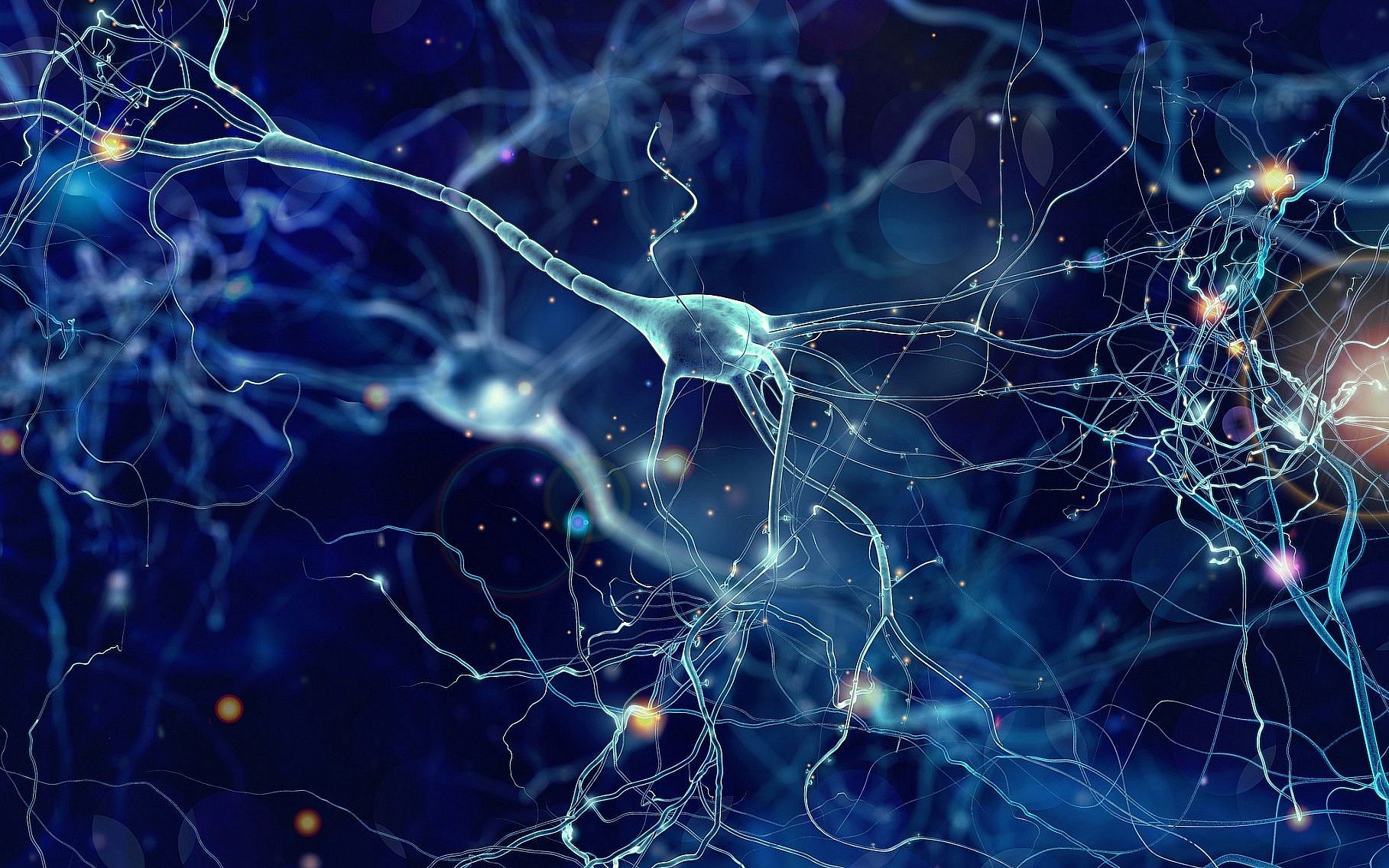
An illustrative image of neurons, or brain cells (whitehoune; iStock by Getty Images)
When in doubt, your cerebrum's movement doesn't impact the physiological improvement of your sex cells. In less difficult terms: What you 'think' can't be acquired. Yet, presently it would appear that we may need to reconsider this standard for in any event one animal types.
The movement of nematode neurons has been appeared to impact the scavenging conduct of the up and coming age of worms, and it could be brought about by a novel legacy pathway.
A group of researchers depicts how free-gliding strands of RNA produced inside roundworm (Caenorhabditis elegans) neurons influence the manner in which ensuing ages track down their dinners.
"We found that little RNAs pass on data got from neurons to the offspring and impact an assortment of physiological procedures, including the nourishment looking for conduct of the descendants," says scholar Oded Rechavi.
Rechavi's group admits their principle objective is to challenge logical doctrines, particularly those on legacy. This is surely a major test to a since quite a while ago settled suspicion in science, so it merits overwhelming investigation before we acknowledge it.
In light of that, the revelation is possibly colossal: it could portray a totally new system by which one age influences the physical condition of the following.
For the greater part of a century ago, we figured there were only two different ways data may be passed from a parent to a youngster – hereditarily, through the coding of their DNA; and socially, by carrying on in manners that by implication influence their posterity's advancement.
Over late decades, scientists have come to become familiar with inconspicuous publication changes that can change how qualities are perused by applying a type of substance lock.
Since these 'epigenetic' procedures can be impacted by the earth, it's currently observed as another way occasions that happen in the lives of one age can influence the advancement of youngsters, however possibly different ages.
Parental practices may deliver epigenetic changes through fondness or outrageous scarcity in that department, yet any quick association between the science of their neurons to the qualities inside their undeveloped cells is believed to be against the guidelines.
"It was for quite some time believed that mind movement could have positively no effect on the destiny of the descendants," says Rechavi.
"The Weismann Barrier, otherwise called the Second Law of Biology, expresses that acquired data in the germline should be segregated from natural impacts."
Quite a long while back, US specialists indicated portable sections of twofold stranded RNA produced by nematode neurons could wind up in their germ cells, and even quiet a portion of the cell's qualities.
While amazing, the investigation missed the mark concerning showing any noteworthy changes in the posterity's capacities.
Rechavi and his group have now exhibited that acquiring these neuronal RNA parts can bring about contrasts in learning and conduct in the people to come, however for a few ages down the line.
They expelled a key RNA restricting protein quality from transgenic strains of C. elegans to exhibit the protein's job in dealing with the degrees of RNA pieces both in nerves and germ cells.
Nearness of that coupling protein had a major contrast in the case of posterity distinguished synthetic substances in their condition at various temperatures, inferring the RNA produced by their parent's neurons influences how their very own sensory system capacities.
The definite changes to their sensory system in charge of the decreased capacity to sniff their condition aren't known, so there's still a lot of work to be finished.
Be that as it may, it's an energizing advance in exhibiting how RNA made by the neurons of a parent can slip into their posterity's cells to advance a fairly significant capacity.
50 years back, a dubious examination by the University of Michigan therapist James V. McConnell closed recollections could be gone through the utilization of RNA in inhuman flatworms.
The examination is today viewed as an eccentric scene ever of, frequently detailed as pseudoscience.
While McConnell's man-eaters have moved toward becoming old stories, ongoing trials still indicate some sort of cooperation between versatile RNA sections and neural action. One such investigation simply a year ago professed to utilize RNA to 'move' the experience of a stun starting with one snail then onto the next.
We should be mindful so as not to interpret any of this examination into human encounters. There's a huge improvement by they way we envision recollections in our minds contrasted and adapted reactions in different living beings.
Be that as it may, if this exploration works out, the single direction road of hereditary legacy is definitely more muddled than we suspected.
"Through this course, guardians could conceivably transmit data that would be advantageous to the descendants with regards to characteristic determination," says researcher and study co-creator Itai A. Toker.
"It could along these lines possibly impact a living being's developmental course."
This examination was distributed in Cell.
Source








0 Comments